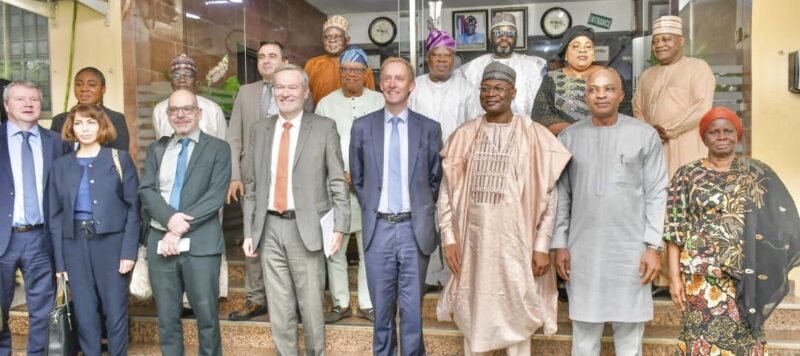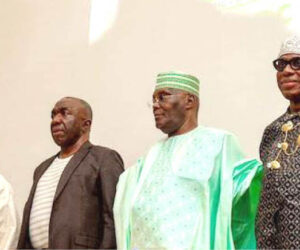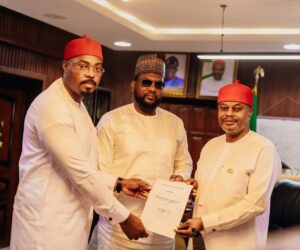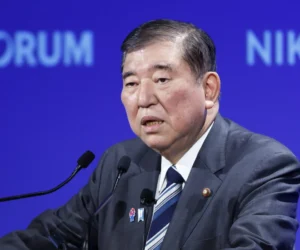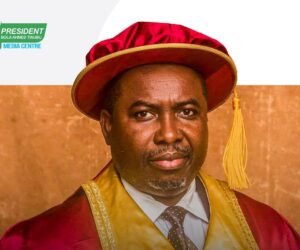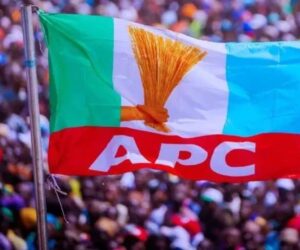-
Warns that uncertainty over legal framework for elections can unsettle it
From Romanus Ugwu, Abuja
The Independent National Electoral Commission (INEC) has attributed the delay in the implementation of the recommendations of the European Union Election Observation Mission for the 2023 general elections to the National Assembly’s failure to review electoral laws.
Chairman of the commission, Mahmood Yakubu, gave the explanation in Abuja while hosting a delegation of the EU Follow-up Mission and Member of the European Parliament on Thursday.
He warned that uncertainty over the legal framework for elections can unsettle the work of the commission as elections draw nearer.
The electoral umpire boss, however, revealed that action has been taken on aspects of the recommendations that only require administrative action to implement.
He told the visitors in his remarks that: “By comparison, your 2023 report made 23 recommendations out of which eight (34.8 per cent) require action by INEC of which only one recommendation was listed as priority.
“The remaining 15 (65.2 per cent) recommendations, of which five were categorised as priority, require action by other entities in the executive, legislature and the judiciary as well as political parties and multiple stakeholders such as Civil Society Organisations (CSOs), the media and professional bodies.
“The commission has carefully considered all the eight recommendations specifically addressed to us in your report. Action has been taken on aspects of the recommendations that only require administrative action to implement.
“Similarly, action is being taken on cross-cutting recommendations that require collective action between INEC and other bodies and stakeholders while waiting for the conclusion of the ongoing legal review by the National Assembly on the recommendations that require legislative intervention.
“I must also add that your recommendations, along with similar reports from other national and international election observers, were the subject of wide-ranging consultations with critical institutions and stakeholders during our own review of the 2023 general elections.
“As you are aware, elections are a process governed by law. Many of your recommendations require the review of our electoral laws. For this reason, the commission had interfaced with our National Assembly, including a retreat with the Joint Committee on Electoral Matters (Senate and House of Representatives).
“We appeal to the National Assembly for an expeditious consideration of the electoral reform proposal. An early passage of laws is critical to our planning for the elections. Uncertainty over the legal framework for the elections can unsettle the work of the commission as elections draw nearer.”
Stating their mission while speaking earlier, Chief Observer of the European Union Election Observation Mission, Barry Andrews, said: “What we are here to do is to look at the recommendations that flowed from the overall mission, that were contained in the final report of the mission back in 2023 and we are very happy to see that there has been very significant progress against these recommendations.
“We recognise that there are certain time constraints, both in terms of judicial reform as well as administrative reform and, of course, constitutional reform, which is somewhat more difficult, but we are making all of these recommendations against international standards that the EU, that Nigeria, like most countries, have signed up to.
“We are part of an overall international election observation ecosystem that has really served to buttress democracy, to support democracy, not just here in Nigeria, not just in Africa, but across the world and in Europe as well.”

